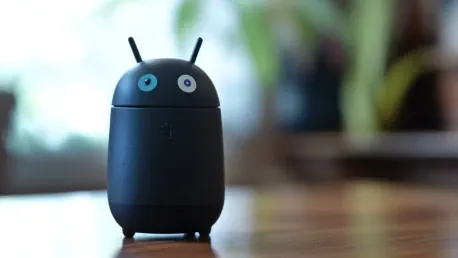In a world increasingly focused on digital privacy and security, Google has taken notable steps to bolster the protection it offers to Android users against unauthorized Bluetooth tracking. The new enhancements are part of an effort to provide better safeguards amidst rising concerns over the misuse of Bluetooth trackers. These new tools, Temporarily Pause Location and Find Nearby, aim to mitigate the risks associated with being secretly tracked via Bluetooth devices. With the Temporarily Pause Location feature, users can temporarily suspend location updates for up to 24 hours, allowing them a window to address potential privacy breaches without immediate searches that could compromise their safety. When users are ready to locate the tracker, the Find Nearby feature offers visual aids and text prompts to assist in pinpointing the device.
Advanced Protections for Users
While these enhancements underscore Google’s commitment to user safety, they also reveal certain limitations within the current protective framework. The new features are integrated seamlessly with Android’s existing Find My Device Network, yet their functionality is restricted to specific Bluetooth trackers such as Pebblebee tags and Chipolo devices. This select compatibility means that the full protective measures of these features are not extended to popular products like Apple’s AirTags, a point of contention among users. Moreover, the default settings for these features are designed for high-traffic areas, which might not be practical for all users. However, these settings can be manually adjusted, offering some flexibility to adapt to different environments.
Another pivotal addition to Google’s toolkit is the capability to gather detailed information about the tracking device. Users can access device identifiers and the owner’s concealed email address, valuable data that can be shared with law enforcement agencies if needed. Although this feature strengthens the protective net, the selective compatibility and functionality limitations persist as significant challenges. Google’s ongoing cooperation with Apple to devise a common standard, Detecting Unwanted Location Trackers, seeks to transcend these limitations by enabling advanced protective capabilities across varied tracker brands, promising a more comprehensive anti-tracking approach in the future.
Collaborative Efforts and Future Considerations
The need for strong anti-stalking measures has become evident due to rising privacy concerns and cases of Bluetooth tracker misuse, especially since Apple’s AirTags launched in 2021. These devices’ precision and ease of access led to numerous safety and privacy issues, pushing both Apple and Google to enhance their protective features. Apple quickly introduced its own anti-tracking measures to mitigate AirTag misuse, collaborating with Android to bolster user safety.
In May 2024, Google and Apple proposed a common standard for detecting unwarranted location trackers—a significant collaborative effort to tackle this issue. Companies like Chipolo, eufy, Jio, Motorola, and Pebblebee have committed to adopting this standard, marking notable progress towards universal protective measures. The collective goal is to offer users comprehensive safety tools across different tracker brands, promoting an industry-wide solution against unauthorized tracking.
However, Google’s new features have improved user safety but have room for enhancement. The selective compatibility and efficacy in low device-density areas need more work. The proposals for common standards and technology advances underscore a major commitment to creating safer digital environments. As Bluetooth tracking evolves, so will protective measures and collaborations, aiming to ensure a secure, privacy-respecting environment for users.









